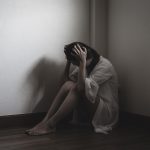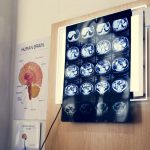
Understanding the Impact of Body Image on Mental Health
June 10, 2024
Understanding PTSD and Its Impact on the Brain
June 17, 2024Post-Traumatic Stress Disorder (PTSD) is a mental health condition that can develop after a person experiences or witnesses a traumatic event. Recognizing the signs of PTSD is crucial for seeking appropriate help and support. In this blog, we will explore the signs someone has PTSD, the criteria for PTSD diagnosis, and what causes PTSD.

What is PTSD Caused By?
PTSD can be caused by exposure to a variety of traumatic events. These events can include, but are not limited to:
Combat and Military Exposure
Many veterans and active-duty military personnel develop PTSD after experiencing combat situations, witnessing death, or enduring the constant threat of danger.
Serious Accidents
Survivors of serious accidents, such as car crashes, industrial accidents, or natural disasters, may develop PTSD as a result of the trauma they experienced.
Physical or Sexual Assault
Experiencing or witnessing physical or sexual assault is a common cause of PTSD. The violence and violation associated with these events can have lasting psychological effects.
Childhood Abuse
Individuals who have endured physical, emotional, or sexual abuse during childhood are at a heightened risk of developing PTSD later in life.
Witnessing Traumatic Events
Even if a person is not directly involved, witnessing a traumatic event, such as a violent crime, can lead to PTSD. The emotional impact of seeing someone else in danger or pain can be profound.
Trauma in the Eye of the Beholder
Recently, more research has examined experiences to make the word “trauma” more inclusive. Age, for instance, greatly impacts a person’s decision on whether a situation is deemed traumatic for them. A 6-year-old child having their parents go through a divorce would be impacted differently than a 24-year-old child whose parents are experiencing divorce.
How the victim feels at the time of trauma also affects the impact. Powerlessness, feeling alone, and feeling responsible for the event affect the experience’s impact on a person.
Signs Someone Has PTSD
Recognizing the signs someone has PTSD is the first step in getting help. These signs are typically grouped into four categories: intrusive memories, avoidance, negative changes in thinking and mood, and changes in physical and emotional reactions.
1. Intrusive Memories
- Flashbacks: Reliving the traumatic event as if it were happening again.
- Nightmares: Disturbing dreams about the trauma.
- Distressing Memories: Unwanted and distressing memories of the traumatic event that come to mind without warning.
2. Avoidance
- Avoiding Triggers: Steering clear of places, activities, or people that remind them of the traumatic event.
- Avoiding Talking About It: Reluctance or refusal to discuss the traumatic experience or how they feel about it.
3. Negative Changes in Thinking and Mood
- Negative Thoughts: Persistent negative thoughts about oneself, others, or the world.
- Hopelessness: Feelings of hopelessness about the future.
- Memory Issues: Difficulty remembering essential aspects of the traumatic event.
- Loss of Interest: A marked loss of interest in activities once enjoyed.
- Emotional Numbness: Feeling detached from others and emotionally numb.
4. Changes in Physical and Emotional Reactions
- Startled Easily: Being easily startled or frightened.
- Hypervigilance: Constantly feeling on edge or alert for danger.
- Irritability: Experiencing angry outbursts or irritability.
- Sleep Disturbances: Trouble sleeping or staying asleep.
- Self-Destructive Behavior: Engaging in risky or self-destructive behavior, such as excessive drinking or reckless driving.
Criteria for PTSD Diagnosis
To diagnose PTSD, mental health professionals use specific criteria outlined in the Diagnostic and Statistical Manual of Mental Disorders (DSM-5). The criteria for PTSD include:
1. Exposure to Trauma
- Direct Exposure: Experiencing the traumatic event firsthand.
- Witnessing Trauma: Witnessing the event as it happened to others.
- Learning About Trauma: Learning that a close family member or friend was exposed to trauma.
- Repeated Exposure: Repeated or extreme exposure to aversive details of traumatic events (e.g., first responders).
2. Intrusive Symptoms
- Recurrent Memories: Intrusive, distressing memories of the traumatic event.
- Dreams: Distressing dreams related to the trauma.
- Dissociative Reactions: Flashbacks in which the person feels the event is happening again.
- Psychological Distress: Intense or prolonged psychological distress at exposure to reminders of the trauma.
- Physiological Reactions: Strong physiological reactions to reminders of the trauma.
3. Avoidance
- Avoiding Memories: Efforts to avoid distressing memories, thoughts, or feelings related to the trauma.
- Avoiding External Reminders: Efforts to avoid external reminders (people, places, activities) that arouse distressing memories.
4. Negative Changes in Cognition and Mood
- Memory Gaps: Inability to remember important aspects of the trauma.
- Negative Beliefs: Persistent negative beliefs or expectations about oneself or the world.
- Distorted Blame: Distorted blame of self or others for the trauma.
- Persistent Negative Emotional State: Persistent negative emotions (e.g., fear, anger, guilt).
- Diminished Interest: Markedly diminished interest in activities.
- Detachment: Feelings of detachment or estrangement from others.
- Inability to Experience Positive Emotions: Inability to experience positive emotions.
5. Arousal and Reactivity
- Irritability and Anger: Irritable behavior and angry outbursts.
- Reckless Behavior: Reckless or self-destructive behavior.
- Hypervigilance: Heightened alertness for potential danger.
- Startle Response: Exaggerated startle response.
- Concentration Issues: Problems with concentration.
- Sleep Disturbances: Sleep problems, including difficulty falling or staying asleep.
Seeking Help
If you or someone you know exhibits these signs and meets the criteria for PTSD, it is essential to seek professional help. Mental health professionals, such as psychologists, psychiatrists, and counselors, can provide effective treatments like cognitive-behavioral therapy (CBT), exposure therapy, and medication. Early intervention can significantly improve outcomes and help individuals regain control over their lives.
In conclusion, understanding the signs, criteria, and causes of PTSD is crucial for recognizing this condition and seeking appropriate help. If you suspect that you or someone you know may have PTSD, don’t hesitate to reach out for professional support.
____________________________________________________________________________
Looking for treatment for an eating disorder, anxiety, depression, trauma, or postpartum mood disorder?
Evolve Counseling Services is a specialized team of Licensed Therapists providing treatment in Paoli.



